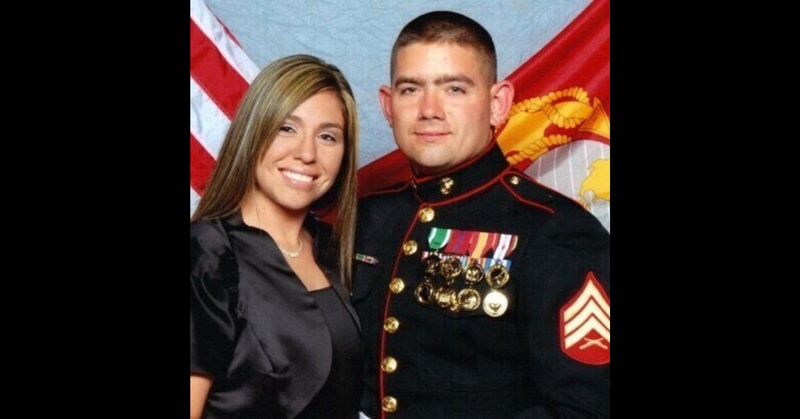
Military caregiver Krystie Hamlett understands the feeling of isolation that many Americans who are staying home due to the COVID-19 pandemic are experiencing for the first time.
She experiences them every day as she cares for her husband, retired Marine Sgt. William “Billy” Hamlett.
“I realized I was a military caregiver when life was no longer the same and my husband started to need my help with cognitive skills and activities of daily living,” she said.
As Billy’s full-time caregiver, Krystie helps her husband cope with the daily challenges he faces as a result of post traumatic stress disorder and physical limitations which have left him confined to a wheelchair.
“During this pandemic, one of the hardest challenges is not having anyone over that regularly helps me,” she continued. “Having to now challenge myself to also juggle helping my children with their studies due to schools being closed is running me thin.”
Krystie and Billy met in 2002 and were soon married. From 2002 to 2007, Billy completed three tours to Iraq and one to Afghanistan. They added a daughter and son to their family during that same time period.
“My husband was working as a drill instructor at Marine Corps Recruit Depot in San Diego when I learned that he needed to be immediately transferred to Wounded Warrior Battalion aboard Camp Pendleton for PTSD treatment and surgeries to address physical injuries resulting from his deployments,” she said.
Following surgery in 2014 to remove his tonsils due to being exposed to burn pits while serving overseas, Billy hemorrhaged from his throat while resting at home.
“Since then, he has had swallowing issues and always has to be supervised while eating or drinking anything,” she said.
Billy was ultimately medically retired from the Corps and the family continues to make their home in California.
“Some tips I could suggest to any military or veteran caregiver is don’t try to finish everything in one day,” she said. “It’s okay to let things go and think getting to them tomorrow will be okay.”
Krystie’s non-profit, Caregiver Healing Foundation, is sending masks at no cost to those who are registered with the organization.
The Elizabeth Dole Foundation is also urging caregivers to practice self-care, to stay connected to family and friends through technology, and to be proactive with health care providers by using telehealth and other means of communication.
Want to stay more connected to the stories and resources Connecting Vets has to offer? Click here to sign up for our weekly newsletter.
